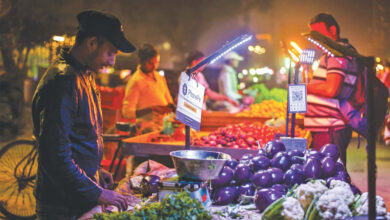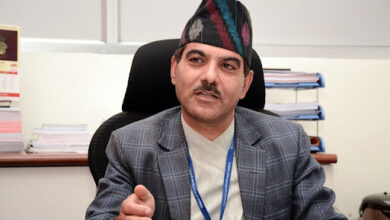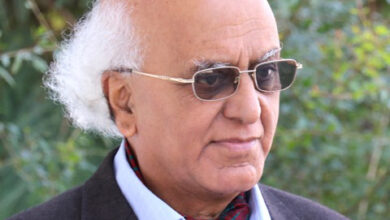
The country’s largest political party, Nepali Congress, is yet to hold the long-pending general conventions of its sister organisations and give a complete shape to their central bodies. Factionalism has trickled down to each of its wings and the demands to revive the sister organisations remain unheard as of now.
The main opposition, CPN-UML, has held conventions of its sister organisations but has failed to effectively take them to the grassroots to address the people’s issues and concerns. Maoist Centre has been repeatedly criticised for paying no heed towards reviving its organisations while fully focusing on the notorious power games at the centre. Other parties, too, have been no different in this matter.
The relevance and effectiveness of the wings of the political parties have come under question of late. Experts have argued that the political dominance, collusion and the vested interests of the politicians have always acted as a headwind against the delivery of the student organisations. Sister wings need to be separated from the political parties, so that they can work effectively in their respective sectors, they say.
To further complicate matters, the leaders of the sister organisations have been mired in infightings. Ahead of the student union elections, there were instances where even the leaders of the same student organisations resorted to violence against their patrons.
In the Nepali Congress, for instance, giving a full shape to its sister organisations has turned into a major bone of contention of late. “We have been urging the party leadership to resolve the issues related to the sister organisations and make them functional,” said Min Bahadur Bishwakarma, a Nepali Congress leader.
Wings of the Nepali Congress include Nepal Women Association, Nepal Tarun Dal, Nepal Student Union, Nepal Prajatantra Senani Sangh, Nepal Peasants Association, Nepal Dalit Association, Nepal Bhutpurva Sainik Sangh, Nepal Aadivasi Janajati Sangh, Rastriya Loktantrik Apanga Sangh, Nepal Muslim Association, Nepal National Magar Association and Nepal Thakur Samaj.
Voices have surfaced within the UML to rethink the functioning of its sister organisations. Speaking at a programme a few months back, CPN-UML chair KP Sharma Oli had said that the committees had been vague with jumbo bodies. He expressed his dissatisfaction with the performance of the party’s organisations.
The UML-associated sister organisations are All Nepal Peasants Federation, All Nepal Women Association, All Nepal National Free Student Union, National Apangata Sangathan Nepal, Loktantrik Aadiwasi Janajati Mahasangh, Nepal Uddhyog Byabasaya Mahasangh, Nepal Sports Federation, Nepal Trade Union Federation, Peshagat Mahasangh, Press Chautari Nepal, National Youth Association and Rastriya Swasthyakarmi Mahasangh Nepal.
Sister organisations of major parties should be engaged in recognising the problems entangling different sections of society, holding creative discussions and finding a way out to mitigate such problems, but instead, their role is confined to producing party cadres, says Rajendra Maharjan, a political analyst. “Sister organisations have forgotten their roles, leading to a deterioration in their relevance,” Maharjan said. “They should exert pressure on the leadership to think about the issues of different sectors they are related to. For instance, the plight of the loan shark victims—mostly the farmers—could be one such issue.”
As their names suggest, sister wings of political parties are each supposed to carry their respective agendas. Student wings should speak up for educational reforms, the peasants wings should be the vocal advocates for farmers, and so on. Ideally, they should have worked independently, unafraid to critique their own party’s policies, says Rajesh Gautam, a political historian.
“But unfortunately, they have been used to fulfil the vested interests of the key leaders of political parties,” Gautam said. “Even though they are a unit of the political parties, they should have worked independently.”
Purushottam Dahal, a senior journalist who is close to the Congress, says Nepal’s sister organisations lack schooling. “Political parties control and intervene in their organisations unnecessarily,” he said. “The sister organisations lack discipline as well.”
Apart from UML and Congress, all other political parties, except those newly emerged ones, have formed sister organisations. Sister organisations of Maoist Centre are ANNISU (Revolutionary), All Nepal Women’s Association Revolutionary, Press Centre Nepal, All Nepal Trade Union Federation (Revolutionary), Nepal National Civil Servants Employees Association and Newa Rastriya Mukti Morcha, Nepal.
Rastriya Prajatantra Party’s student wing is the National Democratic Students Union Nepal. National Democratic Youth Front is its youth wing and its women’s wing is called the National Democratic Women’s Union. Similarly, the Madhesh-based parties also have sister organisations such as the Samajbadi Bidhyarthi Union of the Janata Samajbadi Party and Bidhyarthi Janamat Sangh of the Janamat Party.
Some newly formed parties, however, have completely sidelined the idea of forming sister organisations. The Rastriya Swatantra Party, with a strong supporter base among youths, has decided to not have any sister organisation. It is the fourth-largest party in the House of Representatives with 19 seats.
Party leaders allege that the sister organisations have only been exploiting the resources and because of their ineffectiveness, the public’s hatred towards the term ‘politics’ has only intensified over time, as they have been dividing the society. “A single leader gets engaged in multiple organisations and exploits the resources,” said Kabindra Burlakoti, joint general secretary of Rastriya Swatantra Party. “Meanwhile, students in politics have been deteriorating the quality of education, while they are supposed to improve it.”
Sister organisations are only necessary if the main organisation cannot work in a certain sector, Burlakoti argues. “There are instances where the main organisation and its sister organisations engage in infighting among themselves,” he said. “The main organisations have been playing dirty games and intervening unnecessarily, preventing the student organisations from working.”
It was not always the case, however. During the Panchayat system, political parties working underground led to a fertile ground for the wings of the political parties to expedite their activities over the ground to exert pressure on the system of the day. But soon, the political manoeuvring and lust for power infiltrated the political parties’ wings—so much so that their very relevance has now come under question.
Political historian Gautam added that sister organisations had played an important role in the major political movements when the political parties could not operate openly. “They played a key role in establishing democracy and later, the republic,” he said. “For instance, the peasant movement in the past was the pioneer in planting the seeds of change. In countries the world over, sister organisations have played a crucial role in social and political changes.”
But in Nepal now, sister organisations focus to appease the party leadership to grab power, Gautam said. “The burning issues in the various sectors of society have not been their priority.”
The Nepali Congress at first was less focused on the sister organisations or wings than the communist parties, but gradually, it too started forming sister organisations as it started turning from a mass-based party to a cadre-based party, Maharjan, the political analyst, said.
“The communist party controls its wings openly, they decide the leadership, how to mobilise them in the party’s interest and set their agendas. The Congress has slowly started doing the same,” he said. “See the impact. It could not hold the long-pending convention because the party leadership has not given the green signal.




